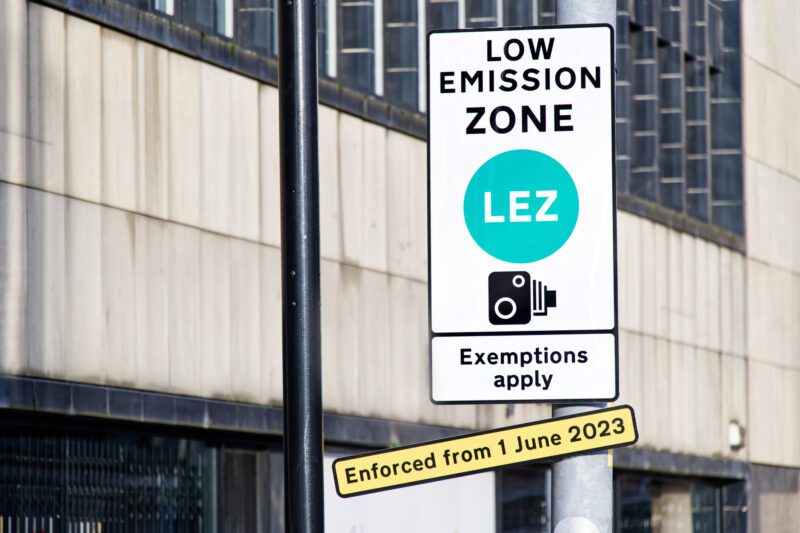Scotland’s First Minister has recognised the vital role taxi drivers play in Glasgow’s night-time economy and pledged to look at the help available as they struggle to meet Low Emission Zone standards.
Glasgow’s LEZ was introduced on June 1 as part of the Scottish Parliament’s plans to reduce pollution levels. Under the scheme, drivers of older, non-compliant vehicles must pay to enter the city centre zone.
Taxis were given a one-year exemption to meet the new standards, with charges being introduced from June 1, 2024. Unlike schemes in other parts of the UK, drivers cannot pay to enter Glasgow’s LEZ. Instead, they receive a penalty charge for driving in the LEZ with a non-compliant vehicle and must pay £60 for cars, minibuses and coaches. The level of the fine doubles with each additional fixed-penalty notice.
As reported by TaxiPoint, Glasgow Labour MSP Pauline McNeill has raised the issue a number of times and called on Humza Yousaf to intervene as drivers struggle to meet the new emissions standards, on top of rising costs such as fuel and taxi insurance.
Mrs McNeill told the Scottish Parliament that the city’s taxi drivers play a critical role in reviving Glasgow’s night-time economy, particularly in the wake of the pandemic.
She explained the challenges taxi drivers face to comply with new LEZ regulations, including retro-fitting their current petrol and diesel vehicles. She said that while regulations give drivers a year to meet the new standards, the waiting list for the only garage in the city that offers this service is booked up until 2026.
Mrs McNeill suggested a national grant scheme to help taxi drivers comply with LEZ regulations, as well as support Glasgow’s post-pandemic recovery.
Speaking in parliament, she said: “The city of Glasgow, as the most locked-down city in the United Kingdom, desperately needs people to return to the night-time economy. Taxis are key to ensuring that people have confidence that they will be able to get home, but taxi drivers have had to fight for every concession to help them to comply with the LEZ.
“Taxi drivers tell me that there is only one garage that will help them to comply and the waiting list goes as far as 2026, but they have only a year to comply.
“Given that, as the First Minister said, other cities will face the same challenges, will he look into having a national grant scheme?
“What else can be done to help the taxi trade to comply? Given that Scotland’s largest city needs to come out of the pandemic and recover, it is very important to deal with this.”
Acknowledging the significance of the issue and the role played by Glasgow’s taxi drivers, Mr Yousaf replied: “This is, of course, an important issue. We all value the night-time economy and the important role that taxi drivers play in it.
“It is important to note that it is not necessary to purchase a new taxi or an electric taxi to be LEZ compliant. For taxi operators who wish to change their vehicle, some older taxis might be suitable for retrofitting. However, I take Pauline McNeill’s point. If, as she said, there is only one garage that can help and it has extremely long waiting lists, I will ensure that we liaise with Glasgow City Council to see what support we can provide.
“It should be said that the LEZ support fund has provided grant funding for taxi retrofits since 2019. Since it opened, more than 300 taxis have taken up funding for retrofitting. A fund is therefore available, but I take the points that Pauline McNeill has raised very seriously, and we will explore and examine with our partners in Glasgow City Council whether there is more that we can do.”
The issue has become more pressing as TaxiPoint reported last month that the huge take-up to retrofit taxis has wiped out this year’s allocation of funding for the scheme, leaving drivers of non-compliant vehicles with limited options.


